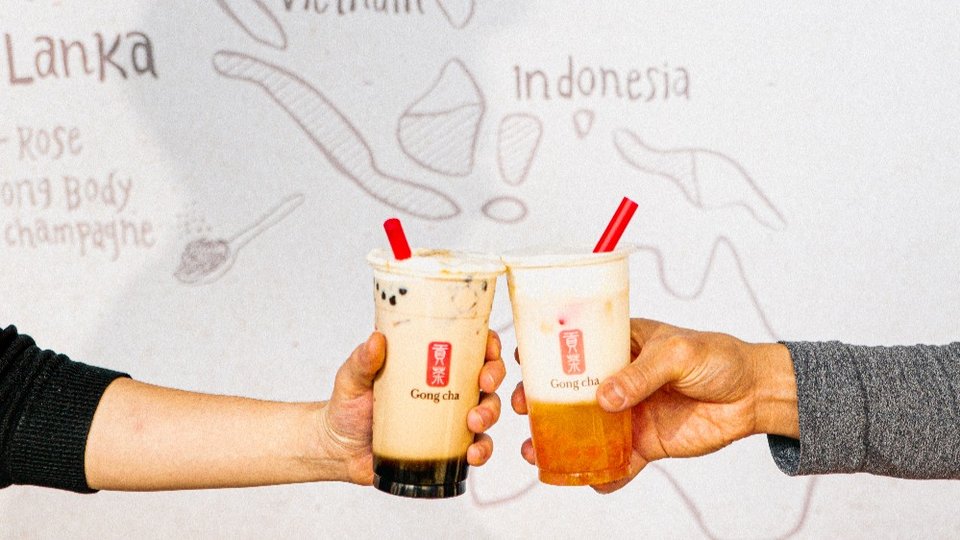Restaurants
Gong cha taps into kiosk technology to enhance Gen Z customer experience
A study by apc reveals Gen Z prioritizes customization and experiences while valuing social responsibility, and bubble tea brand Gong cha's self-service kiosks cater to these desires.

May 31, 2024 by Sandra Carpenter — Editor, Networld Media Group
Within the beverage industry, a shift is taking place as Gen Z emerges as a dominant consumer force, particularly within the vibrant bubble tea market. Gen Zs are digital natives and have distinct preferences, prioritizing authenticity, immersive experiences and personalization.
A recent study conducted by ath Power Consulting (apc), a customer experience consultancy, underscores this trend. The "On the Record with Gen-Z" study, commissioned by The Interactive Customer Experience Association (ICXA), reveals how Gen Z's expectations are reshaping the retail and hospitality industries.
Gen Z's survey responses revealed that:
- The generation demands authenticity.
- Gen Zs crave experiences that blend physical with digital.
- Even basic experiences must be experiential.
- Experiences must be tailored and customized to meet the desires of the individual, not the masses.
- Rewards programs, when mixed with an otherwise great experience, drive Gen Z to repeat purchases.
This past year, Gong cha, a popular international bubble tea chain, has seen a surge in self-service kiosk usage across its stores in the Americas. While kiosks were initially implemented to streamline operations, their impact has extended far beyond efficiency, creating a unique and positive customer experience, particularly for younger demographics.
The power of user-friendly customization
 |
Rebecca Kahn, franchise business leader executive for the U.S. and Canada at Gong cha. Image: Gong cha. |
The story begins with Rebecca Kahn, Gong cha's franchise business leader executive for the U.S. and Canada. Impressed by the user-friendly interface and intuitive scrolling features of one of Gong cha's initial kiosks with partner Peblla, Kahn noticed a distinctive behavior among Gong cha's primary demographic: millennials and Gen Z. Unlike previous struggles to educate customers on complex menus with hundreds of customization options, the kiosk empowered their Gen Z customers to explore and experiment freely.
"The way they were interacting with the kiosk was something I've never seen before," Kahn told Kiosk Marketplace in a Zoom interview. "They spent a lot of time at the kiosk, playing around, scrolling through the different drink series and looking at all the different toppings. ... It was groups of kids together, you know, building drinks and being very creative."
Gong cha sees an influx of teenagers after school and on weekends, often arriving in groups and convening over the self-service kiosk together. Kahn noted that many of these groups would place a single order at the kiosk for their entire party, so they were able to experience the ordering process with one another, paying each other back later via contactless payment.
This newfound freedom to explore drink options, including unfamiliar toppings, directly translated into increased sales. 51.82% of Gong cha's sales have come through the kiosks in the last six months. The average kiosk transaction also boasted $1 higher sales due to add-on selections, prompting Gong cha to prioritize a wider kiosk rollout.
Redefining human connection in the age of technology
The implementation of self-service kiosks has not been met without hesitation and criticism. While some might assume kiosks replace human interaction, our interview with Kahn reveals a different reality. The kiosks have freed up staff to focus on tasks requiring human expertise, like drink preparation and ensuring cleanliness. This, in turn, has led to faster service and a less stressed staff.
"A common misconception is that the kiosk replaces human labor," Kahn told us. "It does not eliminate labor; it's there for you to allocate that labor somewhere else."
Gong cha specifically recognizes the importance of maintaining a human connection, and Gen Z is taking notice. The company is implementing new strategies to foster interaction, such as table touches and a signature drink presentation ritual inspired by tea-making cultures. "Serving tea is an act and a ritual," Kahn said. "It's offering a sign of respect."
Rather than yelling out numbers, Kahn says that the guest's name is on each drink and that the drinks are handed off with intention.
Building brand loyalty with Gen Z
The success of Gong cha's kiosk program underscores the potential of technology to enhance, rather than diminish, the customer experience. The ability to explore and personalize their orders has resonated with a generation known for its desire for individuality.
"These kids come in together. They're all friends. They're looking for a space that's cool and laid back, to hang out and to socialize," Kahn explains. "And then they're also personalizing the drink that they're going to have. And I think that that really speaks to the Gen Z generation and even the younger millennials of wanting to express their individuality and uniqueness."
With plans to incorporate additional kiosks and explore data-driven insights gleaned from kiosk usage, Gong cha is poised to solidify its brand loyalty among a tech-savvy generation. As Kahn concludes, "We're on to something here. Everyone in the last two years has been so focused on, 'how do we address the Gen Z generation?' And I think we're onto something with these kiosks."
Gen Z: craving connection, customization and conscious consumption
According to apc, Gen Z represents an incredibly well-educated customer base and seeks out food service providers that are value-driven, care about the environment and treat their employees well. They also crave a phygital dining experience that blends physical elements of social gatherings with digital options for ordering and customization. Almost half (46%) of the Gen Z population surveyed responded that a restaurant's "commitment to diversity, equity, and inclusion" as well as "the display of social responsibility" ranked as "extremely important." More than half (52%) of the respondents ranked "serving as a good employer" as "extremely important."
What QSRs and fast casual restaurants can take from these findings as well as Gong cha's unique insight is that Gen Z, while having high expectations for quality, service and customization, craves, above all else, connection, social responsibility and a phygital experience that reflects their values.
 ChatGPT
ChatGPT Grok
Grok Perplexity
Perplexity Claude
Claude









